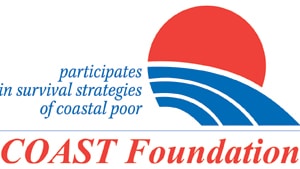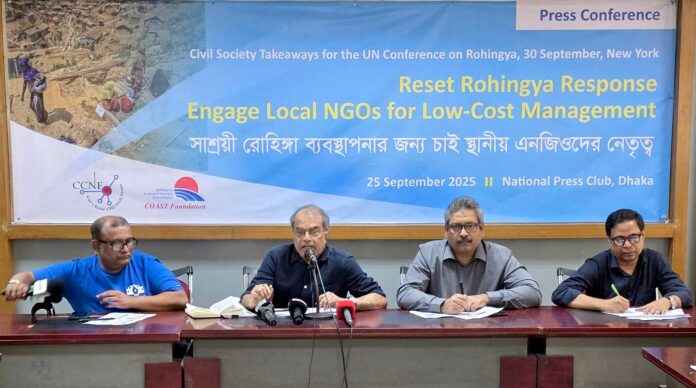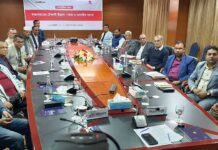Dhaka, 25 September 2025: Bangladesh is currently hosting 1,156,001 Rohingya refugees who fled genocide by the Myanmar military. Now in its 8th year, the Rohingya crisis faces a severe funding shortfall, with only 38% of requirements met as of September 2025. Recent cuts in U.S. funding have deepened the crisis, threatening lifesaving support. At a press conference titled “Reset Rohingya Response: Engage Local NGOs for Low-Cost Management”, organized by COAST Foundation and Cox’s Bazar CSO-NGO Forum, speakers stressed the need for low-cost operations in Rohingya response. They also criticized the World Bank’s loan support to Bangladesh for Rohingya management, calling it inconsistent with the humanitarian principles and global localization agenda.
Mustafa Kamal Akanda moderated the conference and Rezaul Karim Chowdhury of COAST Foundation was in the chair. Shahinur Islam presented the study findings commissioned by COAST Foundation titled “Localization of aid in Rohingya response”. The press conference was organized ahead of the UN Rohingya Conference, scheduled for 30 September 2025 in New York, to sensitize the world leaders to draw their attention for low-cost Rohingya operations managed by the local NGOs.
Sharing his study findings, Shasinur Islam said that Bangladesh received the Rohingya, respecting the global requests on humanitarian grounds. Funding cuts have now become a major challenge and Bangladesh has to bear the burnt. The Government of Bangladesh increased its funding by a massive 263% this year than the funding scale in 2024. This amount came by taking a loan from the World Bank, which is a burden to the country.
Rezaul Karim Chowdhury, citing the study findings, said a total of 63 projects have been approved and initiated in the Rohingya camps from June to August 2025, found that the International NGOs project approval rate was 44.40% while the National NGOs 50.80% and the local NGOs only 4.8% approval. But on the contrary, the international NGOs received 63.6% of funding, National NGOs 33.9%, and Local NGOs received only 2.5%, though local and national NGOs are the largest implementers. The study also revealed that the management costs of UN and INGOs are around 70% whereas their program cost is only 30%. But the local NGOs can respond with low-cost operations, we should consider this approach, he added.
Mustafa Kamal Akanda said the Rohingya community has become a majority and the host community has become a minority in Ukhiya and Takenaf Upazilas. Tensions have been rising there in maintaining peace and security. We should not overlook that matter. Md. Iqbal Uddin said the Rohingya community should not be kept for spoon feeding; we should use them as human resources and connect them with the global markets, offering some special facilities. Nikhil Bhadra from Sundarbans Conservation Movement called for improved and sustainable livelihoods of Rohingya by reducing operational costs through the implementation by local NGOs. The study findings also recommended a Reset of the existing system in the Rohingya Response and emphasised locally-led action is an ideal and sustainable solution. The UN and INGO should be in the monitoring and providing technical support role, where the Local NGOs will be at the driving seat for designing and implementing low-cost operations.
Md. Salauiddin and Imran Hossain from Amardesh, Golam Morshed from HRIDA Bangladesh, and Musa Ahmed from Jagonews24.com also spoke at the press conference.
রোহিঙ্গা কর্মসূচি ‘রিফিউজি ট্যুরিজম নয়’, সাশ্রয়ী বাস্তবায়ন প্রয়োজন_নয়া দিগন্ত
সাক্ষাৎকার : রেজাউল করিম চৌধুরী
Rohingya program “Not a Refugee Tourism”, needed cost-effective execution_The Finance Today
Interview with Rezaul Karim Chowdhury
Cut costs but not the cause: Rethinking the Rohingya aid response_Rezaul Karim Chowdhury
Please download related paper [Bangla press] [English press] [Concept note] [Presentation]
Video Document: Waste to Energy Looming Drinking Water Crisis in Cox’s Bazar Reclaiming Cultivable Land
Photos
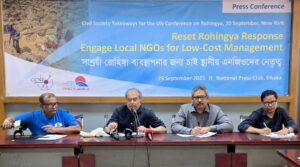 |
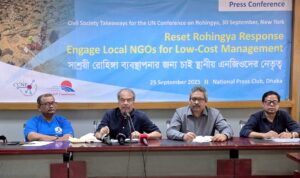 |
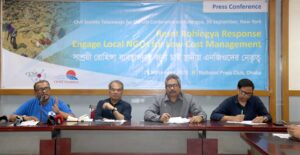 |
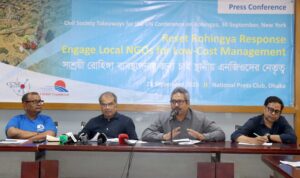 |
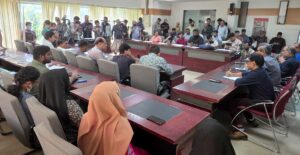 |
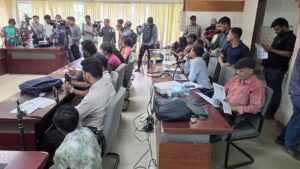 |
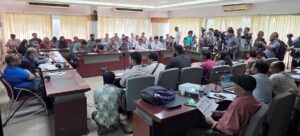 |
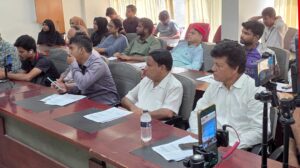 |
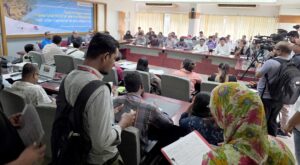 |
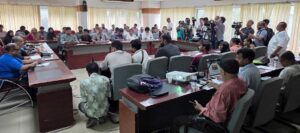 |
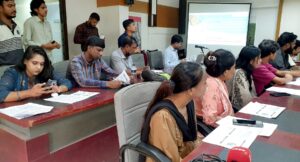 |
Newslink
 |
 |
 |
 |
 |
 |
 |
|
 |
 |
 |
 |
 |
 |
 |
 |
 |
 |
 |
 |
 |
 |
 |
GNA Live |
Ekush Amar |


